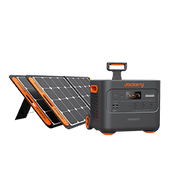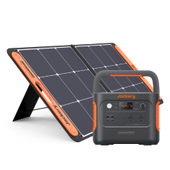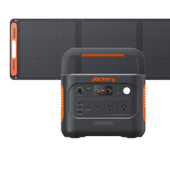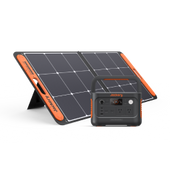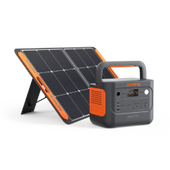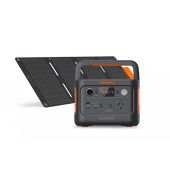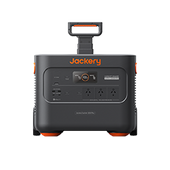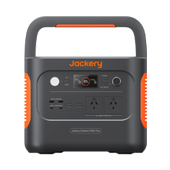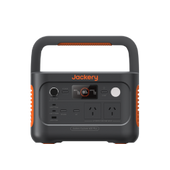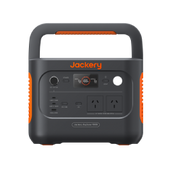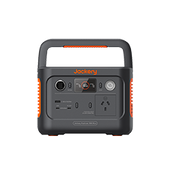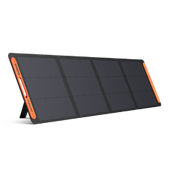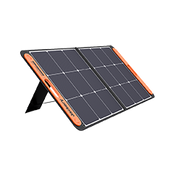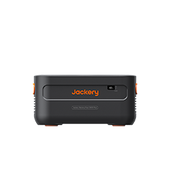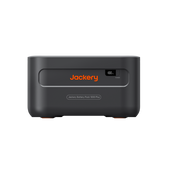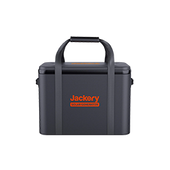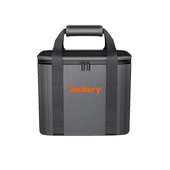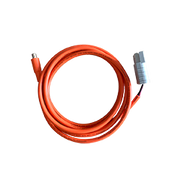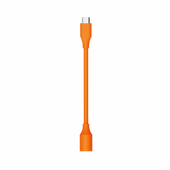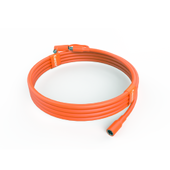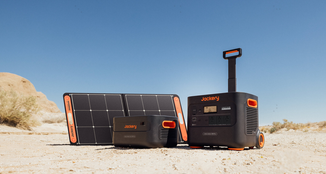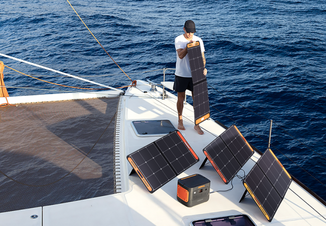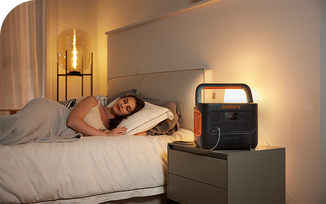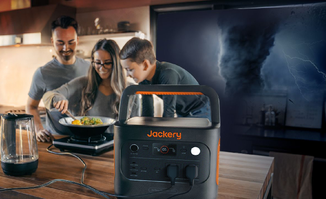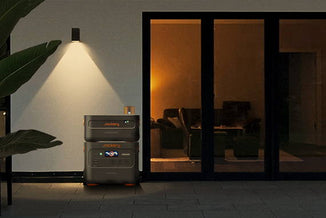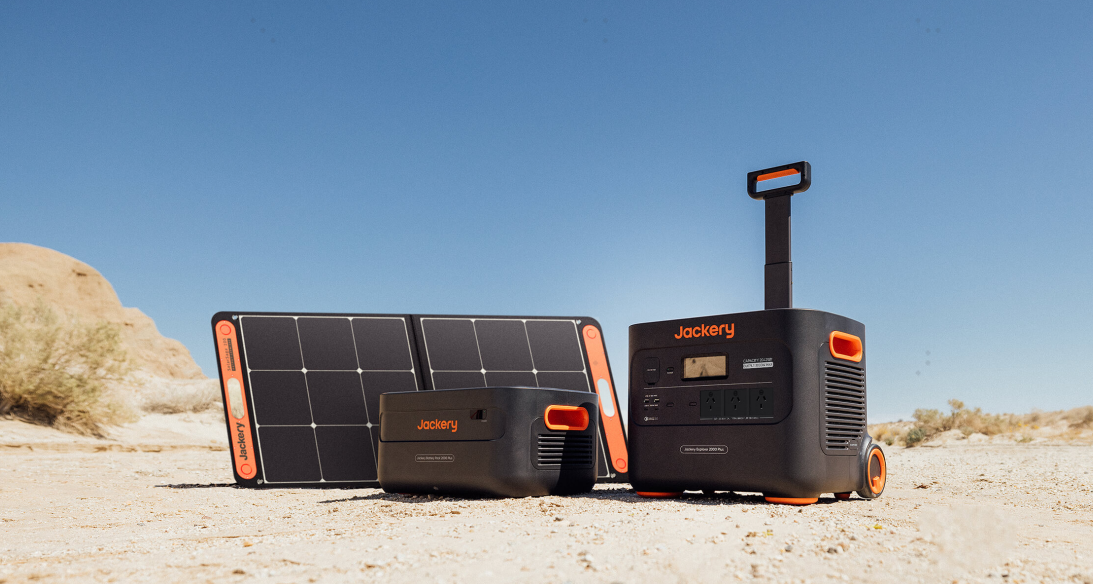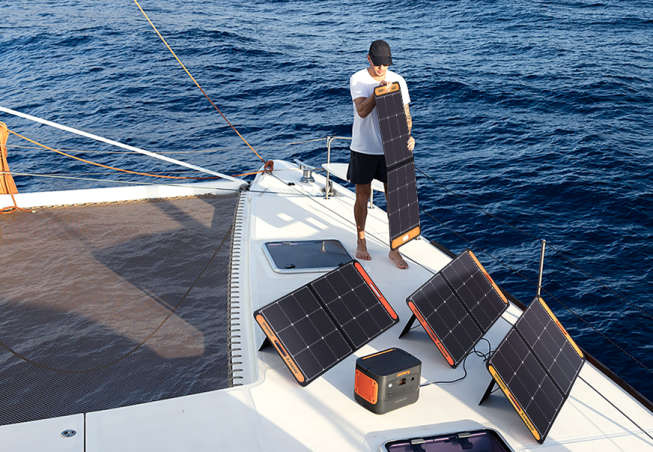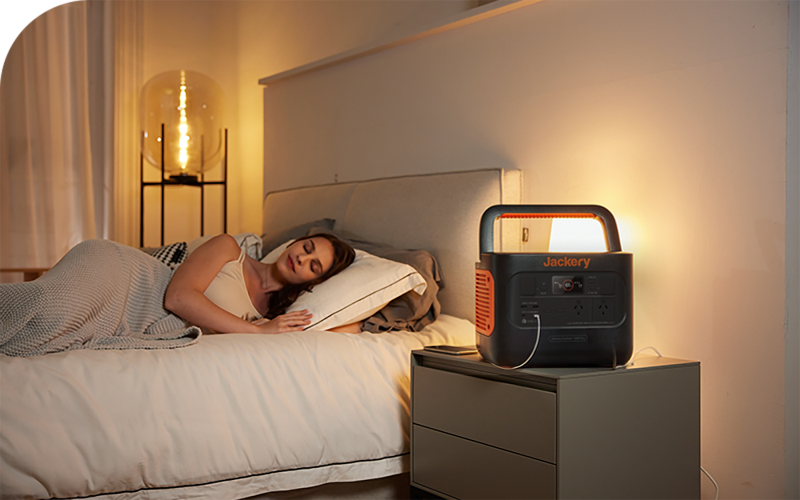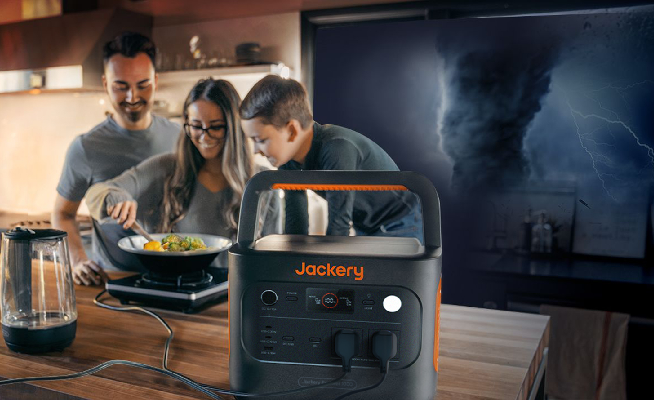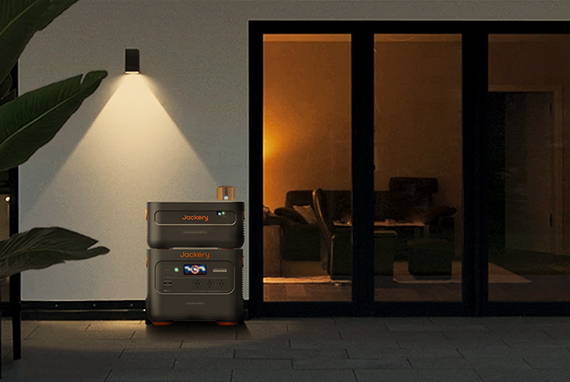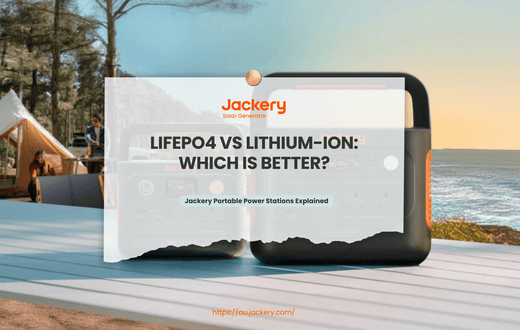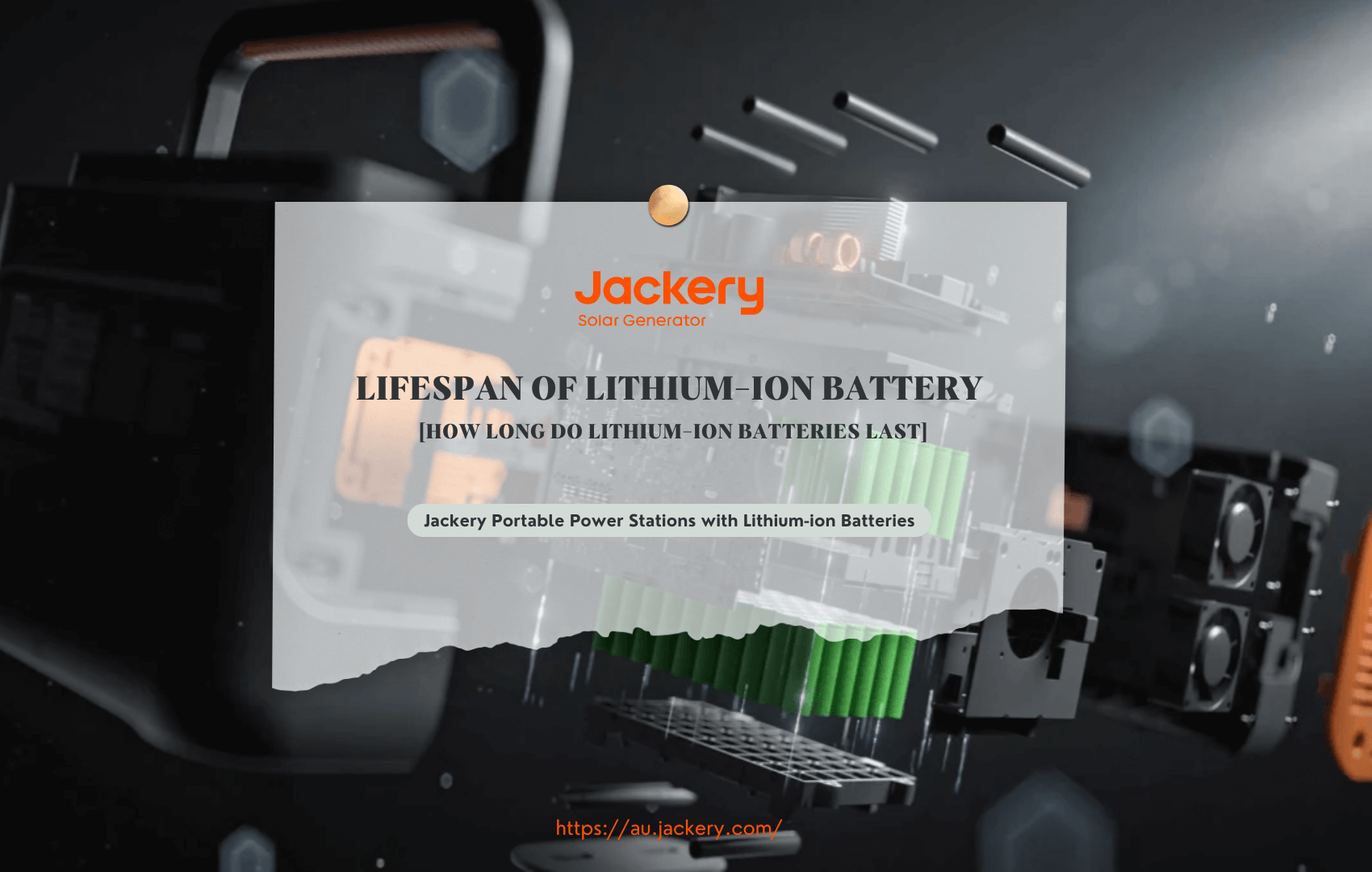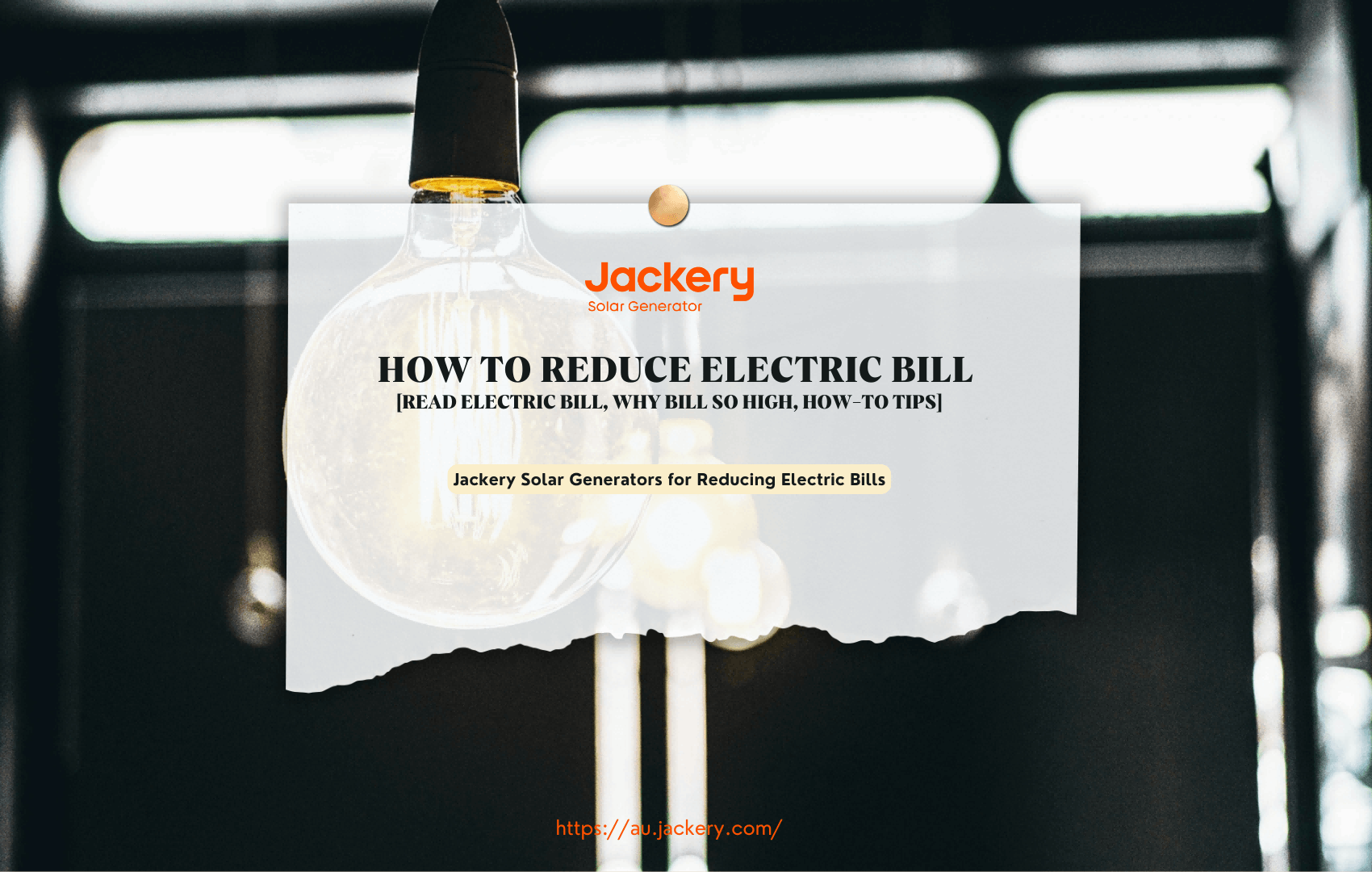|
Key Takeaways: |
|
• Lithium-ion batteries store and release energy by moving lithium ions between positive and negative electrodes. LiFePO4 is a lithium-ion battery with lithium iron phosphate as the positive electrode material. • There are many differences between the two types of batteries, such as the power density, cycle life, safety, cost, and environmental impacts. • LiFePO4 batteries and lithium-ion batteries play different roles in different fields. • We recommend the Jackery Explorer 2000 Plus, 1000 Plus and 1000 Pro with LiFePO4 and lithium-ion batteries inside to ensure stable and continuous power supply. |
LiFePO4 VS Lithium-Ion Batteries: Overviews
Battery technology's continuous progress is vital to the fields of energy storage and green energy. This article aims to detail two essential battery technologies, LiFePO4 and lithium-ion batteries, and conduct an in-depth analysis of their characteristics, performance, and applicable scenarios.
Lithium Ion Battery
Lithium-ion batteries store and release energy by moving lithium ions between positive and negative electrodes. Its working principle is based on lithium ions' charging and discharging process. Lithium-ion batteries are renowned for their no-memory effect and long life.
They usually operate over various temperatures and are suitable for portable electronic products. Lithium-ion batteries are used in multiple electronic products, such as smartphones, tablets, laptops and electric vehicles. Due to its excellent performance and good security, it has been widely recognised by consumers and industries.
LiFePO4 Battery
LiFePO4 is a lithium-ion battery with lithium iron phosphate as the positive electrode material. Its working principle is similar to that of lithium-ion batteries but has unique properties due to the different positive electrode materials. LiFePO4 batteries have high energy and power density, as well as excellent cycle stability and safety. In addition, their relatively low cost makes them highly competitive in some application fields.
The advantages of the LiFePO4 battery are its excellent safety performance and long cycle life. It makes LiFePO4 batteries widely used in electric vehicles, energy storage systems, and fields that require long-term stable operation. In addition, due to its good environmental adaptability, the LiFePO4 battery is also suitable for energy supply in some unique environments.
Lithium iron phosphate batteries also have disadvantages, such as high cost and large size, which may limit their scope of application in practical applications.
LiFePO4 VS Lithium-Ion Batteries: Differences
Lithium-ion and lifepo4 are the two most common types of batteries, but there are many differences in performance between the two batteries. The following are the differences between the two batteries in several essential aspects.
Energy Density
LiFePO4 batteries generally have a lower energy density (90-120 Wh/kg) than Li-ion batteries, which means they store less energy per unit weight.
Li-ion: Offers a higher energy density (150-200 Wh/kg), making it more suitable for consumer electronics.
Cycle Life
LiFePO4: Known for their impressive cycle life, often exceeding 2000 cycles, they are ideal for applications requiring frequent charging and discharging.
Li-ion: Generally, cycle life is shorter, around 500-1000 cycles.
Safety
LiFePO4: Highly stable and safe, with a lower risk of thermal runaway and fire because of the strong chemical bonds in the iron phosphate material.
Li-ion: More susceptible to overheating and thermal runaway, which can cause fire or explosion if not appropriately managed. Safety mechanisms are critical in lithium-ion battery design.
Cost
LiFePO4: Often more expensive upfront due to the materials and manufacturing processes involved. However, their long lifespan can make them more cost-effective over time. Lithium-ion Batteries
Lithium-ion Batteries are often cheaper upfront but may require more frequent replacements, which can result in higher long-term costs.
Environmental Impact
LiFePO4: LiFePO4 batteries do not contain environmentally damaging cobalt.
Lithium-ion: Often contains cobalt, which is linked to environmental damage and human rights issues in mining practices.
|
Differences |
LiFePO4 Battery |
Lithium Ion Battery |
|
Energy Density |
Lower |
Higher |
|
Cycle Life |
Long-lasting |
Shorter |
|
Safety |
Highly stable and safe |
Prone to overheating and thermal runaway |
|
Cost |
High cost |
Prone to overheating and thermal runaway |
|
Environmental Impact |
More environmentally friendly |
Easy to damage the environment |
LiFePO4 VS Lithium-Ion Batteries: Pros & Cons
With the development of technology, rechargeable batteries are increasingly used in various electronic devices. LiFePO4 and lithium-ion batteries are two common types of batteries. Here are the advantages and disadvantages of these two batteries so you can choose a more suitable one for your needs.

Pros & Cons of LiFePO4 Batteries
The following are the advantages of LiFePO4 Batteries:
High Safety: LiFePO4 batteries are highly safe. Safety accidents such as short circuits, overcharges, and discharges are not easy to have. LiFePO4 batteries also have high thermal and chemical stability and stable internal structures. Even under abnormal conditions such as high temperatures or short circuits, they are not easy to burn or explode.
Long Life: LiFePO4 batteries have a long cycle life, and their charge and discharge times can reach thousands or even tens of thousands of times, much higher than those of other types of batteries.
High Energy Density: Although the energy density of LiFePO4 batteries is not as good as that of other types of batteries, it is still high and can meet the needs of most applications.
Environmental Protection: LiFePO4 batteries are pollution-free, environmentally friendly, and relatively cheap.
The following are the disadvantages of LiFePO4 Batteries:
High Cost: The cost of LiFePO4 batteries is relatively high, resulting in a relatively high market price.
Limited Low-Temperature Performance: In low-temperature environments, the discharge capacity of lithium iron phosphate batteries may decrease.
Slow Charging Speed: LiFePO4 batteries have a slower charging speed than some fast-charging lithium-ion batteries.
Small Lithium Ion Diffusion Coefficient: LiFePO4 batteries have low electronic conductivity, resulting in poor room temperature cycle performance and high-frequency charge and discharge performance.
Pros & Cons of Lithium-Ion Batteries
The following are the advantages of Lithium-ion batteries:
High Energy Density: Another notable feature of lithium-ion batteries is their high energy density, which makes the battery life longer.
Fast Charging Speed: Lithium-ion batteries support fast charging technology and can be fully charged quickly.
Good Low-temperature Performance: Lithium-ion batteries perform better in low-temperature environments and maintain a high discharge capacity.
Wide Application: Lithium-ion batteries are broadly used in electric vehicles, smartphones, laptops and other fields.
The following are the disadvantages of Lithium-ion batteries:
Safety Hazards: Lithium-ion batteries may have safety hazards during use, such as short circuits, overcharges, over-discharge, etc., which may lead to thermal runaway or even explosion.
Short Life: Compared with LiFePO4 Batteries, Li-ion batteries have a relatively short cycle life and must be replaced regularly.
Slight Environmental Pollution: Although lithium-ion batteries are already relatively environmentally friendly, they may still have a particular impact on the environment during production and use.
|
|
LiFePO4 Battery |
Lithium Ion Battery |
|
Pros |
• High safety • Long service life • High energy density • Environmentally friendly |
• High energy density • Fast charging speed • Good low-temperature performance • Widely used |
|
Cons |
• High cost • Limited low-temperature performance • Slow charging speed • Small lithium ion diffusion coefficient |
• Possesses safety risks • Short service life • Minor environmental pollution |
In summary, LiFePO4 and lithium-ion batteries have advantages and disadvantages. LiFePO4 batteries have benefits such as high safety, long life and environmental protection. Still, the disadvantages must be addressed, such as high cost, limited low-temperature performance and slow charging speed.
Lithium-ion batteries have advantages such as fast charging speed and good low-temperature performance, but they also have safety hazards and short life. Therefore, when choosing which type of battery to use, it is necessary to weigh it according to the specific application scenario and needs.
LiFePO4 VS Lithium-Ion Batteries: Applications
Battery technology is undoubtedly one of the most critical links in the current energy storage and supply field. Due to their respective advantages, LiFePO4 and lithium-ion batteries are widely used in various fields.
Application of LiFePO4 Battery
LiFePO4 battery is a lithium battery famous for its excellent stability and environmental protection. It has high energy and power density and can provide a large current quickly. This battery's high energy density and long service life make it an ideal choice for electric vehicles and other fields.

|
Applications of LiFePO4 Batteries |
|
|
Electric Vehicles |
Due to their high energy density, liFePO4 batteries can provide sufficient energy support for electric cars and ensure their safety while driving. |
|
Energy Storage System |
LiFePO4 batteries can be used in home and industrial energy storage systems. Charging during low-power periods and discharging during peak periods can achieve energy conservation and emission reduction. |
|
Backup Power Supply |
LiFePO4 batteries are also widely used in backup power supply systems to provide stable power support for some equipment that requires continuous power supply. |
|
Drones and Aviation Models |
LiFePO4 batteries are relatively light and have high energy density, making them suitable for improving flight time and performance in drones and aviation models. |
Applications of Lithium-Ion Batteries
A lithium-ion battery is a secondary battery with lithium metal or salt as the active harmful electrode material. It has the advantages of having no memory effect and fast charging speed, among others.

In addition, a lithium-ion battery's high voltage gives it a higher output voltage and better voltage stability. Due to these advantages, lithium-ion batteries are broadly used in mobile phones, laptops, electric vehicles, and other devices.
|
Applications of Lithium-ion Batteries |
|
|
Mobile Devices |
Lithium-ion batteries are ideal for mobile devices such as phones and laptops. Their high energy density and long life enable these devices to operate for a long time. |
|
Electric Vehicles |
Lithium-ion batteries are broadly used in electric vehicles due to their excellent charging and discharging performance. They can provide sufficient power support for electric vehicles and ensure the car's driving distance and performance. |
|
Aerospace |
Due to high voltage and lightweight characteristics, lithium-ion batteries are also used in aerospace, such as power systems for satellites and spacecraft. |
|
Medical Equipment |
Lithium-ion batteries provide a long-lasting and stable power supply for medical equipment such as pacemakers, ensuring its long-term stable operation. |
|
Other Areas |
Include power tools, electric wheelchairs, electric surfboards, etc. These devices have high battery performance requirements. The widespread use of lithium-ion batteries has improved their convenience and endurance. |
In summary, lithium iron phosphate batteries are a better choice. Lithium-ion batteries may be more suitable for your needs if you value cost and charging speed. The final selection should be based on your specific usage scenario and budget.
Jackery Portable Power Stations Explained
The controversy between lithium-ion batteries and LifePO4 regarding portable electricity is unavoidable. Although lithium-ion has long been the industry standard, LifePO4 provides enhanced safety, a longer lifespan, and excellent thermal stability.
 Utilising the advantages of LifePO4 technology, Jackery Portable Power Stations provide consumers with reliable power solutions that exceed and outlive. Jackery is the standard for portable energy storage, regardless of your preference for durability or safety.
Utilising the advantages of LifePO4 technology, Jackery Portable Power Stations provide consumers with reliable power solutions that exceed and outlive. Jackery is the standard for portable energy storage, regardless of your preference for durability or safety.
However, pay attention to lithium-ion! It is still a good choice for some use scenarios, including lightweight requirements. Jackery offers cutting-edge solutions for both technologies, so you may choose the generator that best suits your needs. Jackery Portable Power Station also offers various charging choices, such as solar panels, carports, wall outlets, and other electric sources, to provide a versatile and reliable energy source.
Jackery Explorer 2000 Plus
The Jackery Explorer 2000 Plus combines cutting-edge technology with user-friendly functionality, making it a leader in portable power solutions. Its integrated Jackery App lets you control and monitor your power station remotely, offering real-time updates on battery status, energy usage, and customised settings. This advanced system puts complete energy management at your fingertips, ensuring you're always prepared and in control.
Packed with ports to meet all your charging needs, the Explorer 2000 Plus includes three 3000W AC outlets, dual 100W USB-C outputs, and a 12V carport. Whether you're charging large appliances, powering tools, or recharging multiple devices simultaneously, this power station handles it all with ease. Its pure sine wave technology guarantees safe and stable energy delivery, protecting your devices from damage.
The 2000 Plus can be expanded with additional battery packs, taking its base 2 kWh up to an impressive 12 kWh. This extended capacity covers everything from short power outages to longer outdoor trips. Its LiFePO4 battery has a 10-year lifespan and supports over 4,000 charge cycles. With its exceptional power, versatility, and technological innovation, the Explorer 2000 Plus is perfect for outdoor enthusiasts, professionals, and homeowners alike.
 Expandable capacity of up to 12kWh for a week of off-grid living. Supports up to 5 add-on battery packs (sold separately).
Expandable capacity of up to 12kWh for a week of off-grid living. Supports up to 5 add-on battery packs (sold separately).
LiFePO4 battery with a 10-year lifespan.
High FCC/CE and UL certifications, innovative ChargeShield Technology with 62 forms of protection.
Whisper-quiet operation, emission-free, and rapid solar charging via IBC panels.
Jackery Explorer 1000 Plus
Compact yet powerful, the Jackery Explorer 1000 Plus is a reliable backup for everyday and emergency use. Its portability, power, and efficiency blend make it a valuable tool for energy savings at home or outdoor adventures.
With a capacity of 1264Wh and a 2000W output, the Jackery 1000 Plus supports up to 99% of household devices. It's expandable up to 5 kWh with additional battery packs, offering 1-3 days of power in case of outages. Imagine running essentials like your fridge, lights, and even laptops without using grid electricity.
The 1000 Plus is equipped with LiFePO4 cells, designed to last 10 years with daily use, and Jackery's ChargeShield technology. This combination provides stable power, protecting your appliances from damage and giving you a dependable power source for years.

With a capacity of 1264Wh and a 2000W output, the 1000 Plus supports 99% of devices.
Supports up to 3 add-on battery packs (sold separately), expanding to 5kWh and ensuring 1-3 days of home backup power.
1.7 H Wall Charge (0-100%)
LiFePO4 battery cells, lasting up to 10 years - providing 4,000 charge cycles.
Jackery Explorer 1000 Pro
Stay prepared for every situation with the Jackery Explorer 1000 Pro. With its 1002Wh capacity and 1000W output, this portable power station is designed to power 93% of your daily appliances, from smartphones and laptops to refrigerators and pumps. Its lightweight, ergonomic design (11.5kg) and foldable handle make it a practical solution for both outdoor adventures and indoor use.
Unlike the Plus series, the Explorer 1000 Pro uses a lithium-ion battery. Equipped with an exclusive recharging algorithm, it offers a lifespan of 1000 cycles before reaching 80% of its original capacity. It also features a standby time of over 365 days, ensuring it's ready to go whenever needed. Whether planning a camping trip or preparing for a power outage, this power station provides consistent and reliable energy.
With multiple ports, including dual USB-C outputs (100W max) and dual AC outlets (1000W, 2000W peak), the Explorer 1000 Pro simultaneously supports fast and efficient charging for multiple devices. Its intuitive Smart Screen provides clear updates on battery status, while its advanced BMS technology safeguards your devices, making it an essential addition to your power solutions.

Quick AC Recharging in 1.8 Hours
1002Wh Capacity, 1000W (2000W peak) Output
Supports 7 Devices Simultaneously
Dual 100W PD Fast Charge
Use Weekly for 10+ Years
LiFePO4 VS Lithium-Ion Batteries: Which Is Better?
In today's battery market, LiFePO4 and lithium-ion batteries are essential in various application fields due to their unique advantages. The following will conduct a detailed comparative analysis of the two batteries from multiple perspectives, such as performance, cost, and application scenarios, to help you better understand and choose the right battery type.
LiFePO4 batteries are recognised as one of the safest and most reliable electric vehicle batteries. They have a long life, high-temperature stability, and excellent safety performance. In addition, they have high energy density and charging efficiency, allowing electric vehicles to travel farther. However, compared with lithium-ion batteries, lithium-iron phosphate batteries may cost more, and their high self-discharge rate may cause balancing problems after use.
Lithium-ion batteries are one of the most common types of electric vehicle batteries, with high energy density, lightweight, and fast charging speed. Although its safety is slightly inferior to lithium iron phosphate batteries and requires more attention and maintenance, it is still the first choice of many electric vehicle manufacturers. Lithium-ion batteries have high energy density and good cycle life and are widely used in various electric vehicles.
|
|
LiFePO4 Battery |
Lithium-ion Battery |
|
Price |
Medium |
Higher |
|
Lifespan |
Longer |
Shorter |
|
Safety |
Higher |
Lower |
|
Charging speed |
Slower |
Faster |
In summary, lithium iron phosphate batteries are a better choice. Lithium-ion batteries may be more suitable for your needs if you value cost and charging speed. The final selection should be based on your specific usage scenario and budget.
LiFePO4 VS Lithium-ion Batteries FAQs
The following are the frequently asked questions about the LiFePO4 vs. Lithium-ion batteries.
1. In addition to LiFePO4 and lithium-ion batteries, what other standard batteries exist?
In addition to LiFePO4 and lithium-ion batteries, the most common battery is sodium-ion. The most outstanding advantage of sodium-ion batteries is that sodium resources are abundant, and the cost is low. Sodium is an element abundant on Earth. It has ample reserves, wide distribution, and a relatively low price. In addition, the advantages of sodium-ion batteries include higher energy density, better stability, higher safety, and a wide operating temperature range.
2. Which one has a broader range of applications, LiFePO4 or lithium-ion batteries?
Lithium-ion batteries, which can have a capacity of 200-600Ah, have a more comprehensive range of applications because of their small size, lightweight, and long cycle life. They can travel 20-40 kilometres on a single charge and are commonly used in electric vehicles, hybrid vehicles, solar panels, and other equipment.
In contrast, although LiFePO4 batteries are safer and have a higher thermal runaway temperature, their self-discharge rate is higher, which may cause balance problems after use. In summary, although LiFePO4 batteries have safety advantages, lithium-ion batteries are adopted in a broader range of applications due to their many benefits.
3. Which is more portable, LiFePO4 or lithium-ion battery?
LiFePO4 batteries are light and small, so they are very portable and suitable for devices that must be frequently carried or moved. Although lithium-ion batteries excel in energy density and charge and discharge efficiency and are ideal for fields that require high power output, such as electric vehicles, LiFePO4 batteries are more appropriate for devices that need to be frequently carried or moved, such as portable electronic devices, because of their light and portable characteristics. Therefore, from the perspective of portability, LiFePO4 batteries are superior.
Final Thoughts
To sum up, LiFePO4 and lithium-ion batteries are essential in energy. LiFePO4 batteries have the characteristics of high safety performance, long life, and low cost. Their structure is stable, they can continue working under high currents, and they support fast charging. They are broadly used in new energy vehicles, energy storage systems, and smart grids.
In comparison, lithium-ion batteries are known for their high energy density and excellent performance. They have high output power and fast charge and discharge capabilities. They are essential in mobile devices, electric vehicles, aerospace, and other fields. Based on the introduction in this article, you can choose a battery that better meets your needs.

